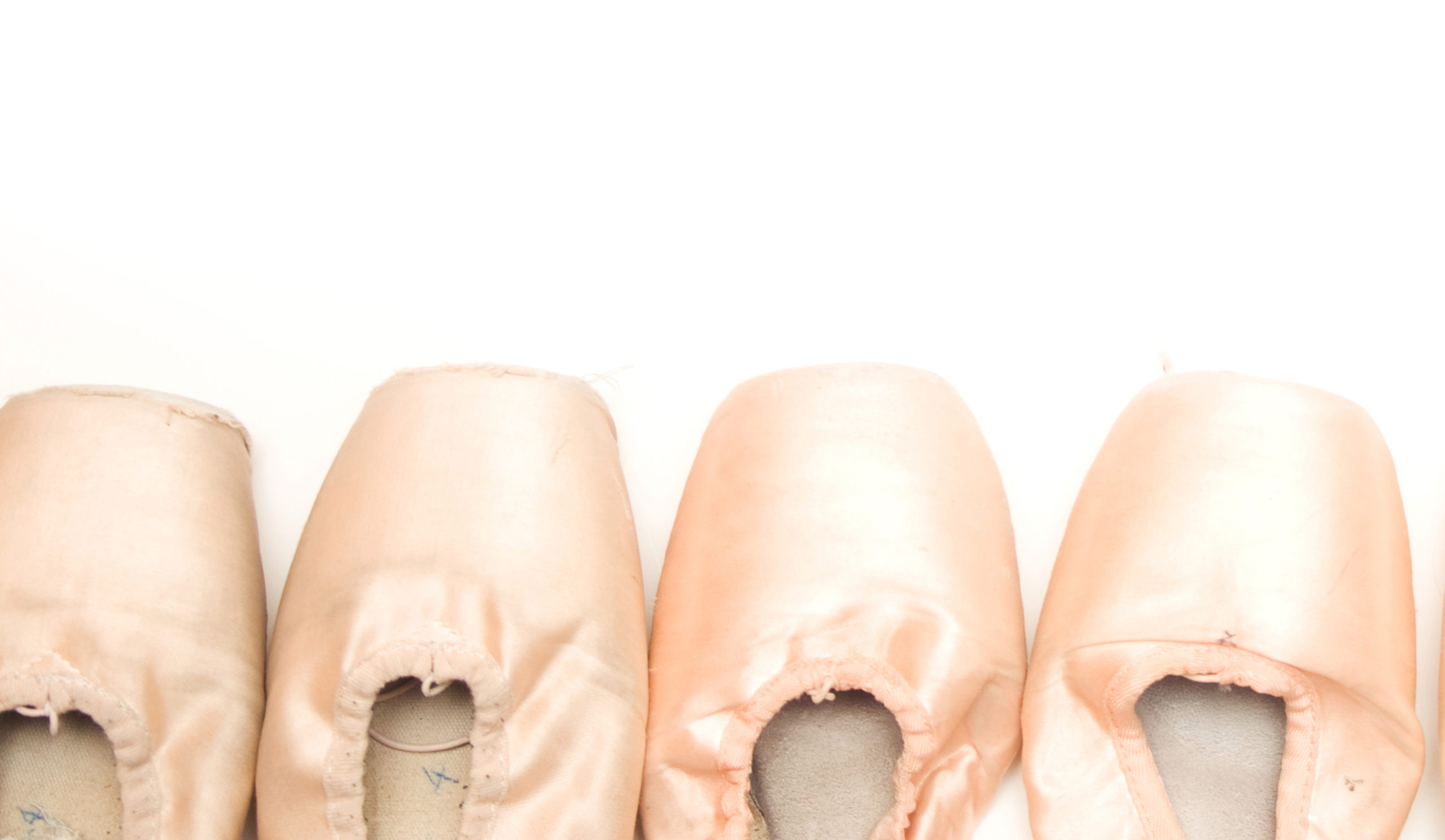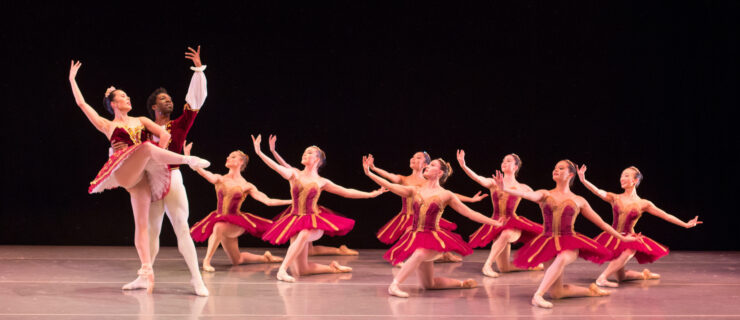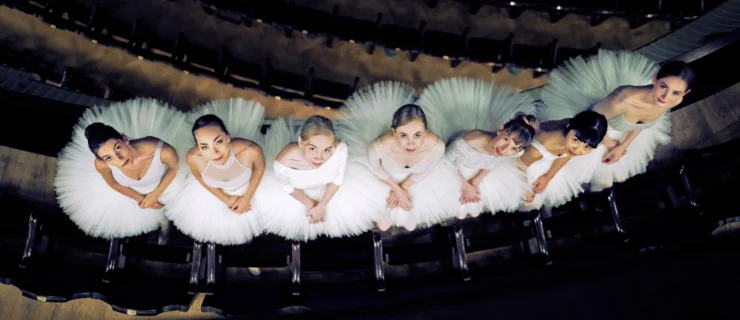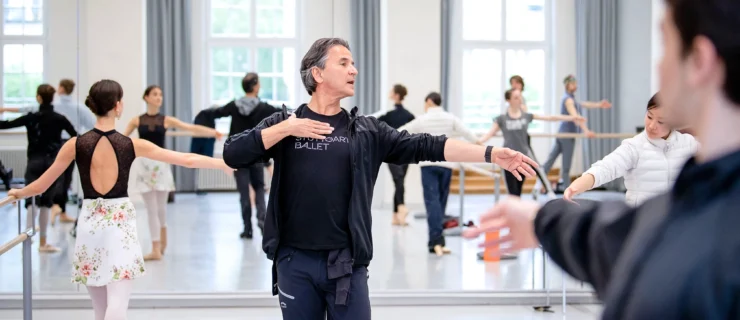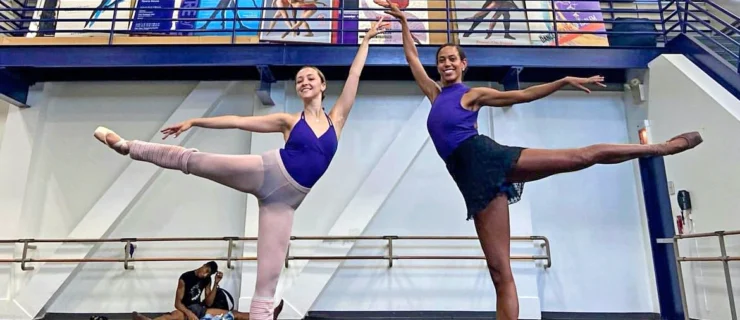Company Life: It Can Happen In An Instant
What began as a routine company class a few years ago for Miami City Ballet’s Sara Esty turned into anything but when a principal ballerina landed badly from a tour jeté. Then in the corps de ballet, Esty felt all eyes turn to her as people realized that she—the dancer’s understudy—would now be starring in both Twyla Tharp’s The Golden Section and George Balanchine’s Valse-Fantaisie. Opening night was less than 24 hours away. It was a terrifying, and an exhilarating, moment.
Two years and one glowing New York Times review later, Esty is a soloist.
Esty’s story is far from unique. But understudying isn’t all Cinderella moments and rave reviews. The reality is that it’s up to the understudy to be ready to perform at a moment’s notice, regardless of whether that moment ever arrives. It’s a frequently frustrating but ultimately rewarding position. Even if you don’t get the chance to perform, you still walk away having boosted your knowledge—and your confidence.
Houston Ballet artistic director Stanton Welch considers understudying one of the highest levels of responsibility a dancer can have: Should anything happen to the first-cast dancer, the full weight of the part falls on the understudy’s shoulders. “If I cast you as an understudy, that means I feel you have attributes that would allow you to really excel in the role, but you aren’t quite there yet,” Welch says. What makes a good understudy? “For me, the best understudies work and prepare a ballet with the same intensity as the first cast,” Welch says. “I think understudies need to spend a substantial amount of time on their own thinking about their ideas for the role, down to the smallest detail.”
Kathleen Tracey, ballet master at New York City Ballet, also values understudies who take the initiative. She keeps tabs on quick studies who are reliable in a pinch. “If dancers are smart and motivated enough to work in the back on their own,” says Tracey, “I see that.” When Christopher Wheeldon needed to fill a spot in his Polyphonia, it was Tracey who urged him to use new company member Lauren Lovette, an understudy who’d demonstrated her strong work ethic in class and rehearsals. (Tracey wasn’t disappointed: It was a breakout moment for the young dancer, who’s now a Wheeldon favorite.)
NYCB corps de ballet member Taylor Stanley likens understudying to being constantly “on call.” When he found himself the only NYCB male apprentice two years ago, he tried to learn all of the male corps dancers’ material, knowing he’d be the one onstage if any dancer dropped out. He kept an eye on the particulars—specific port de bras, entrances and exits—and made good use of the tape room. “It’s tricky to pick things up when you’re standing in the back, and you’re not getting the movement into your body as fully as you’d like,” he says, which is why the tape room was an especially valuable asset. His extra work came in handy when a dancer got injured, and Stanley had only two rehearsals before performing Jerome Robbins’ N.Y. Export: Opus Jazz.
But while doing intensive work on your own makes a difference, don’t forget to use your most valuable resource: other company members. “Everyone’s there to help each other,” says Esty. “If you’re confused about something, don’t hesitate to go to the first- or second-cast person and say, ‘Help!’ ” Talk to your ballet master, too. When the other dancers are uncertain about a phrase, and the choreographer isn’t available to answer questions, the ballet master will be able to provide guidance and support.
You might not have adequate rehearsal time to get to know how the steps feel inside and out, but you can get to know the music inside and out. Understanding the intricacies of the score will help orient you if you get confused onstage. It can also come in handy if the orchestra’s version of the music isn’t sounding like the recording or piano version you’ve been rehearsing to. “At any moment, if something happens in the orchestra, I can just keep counting and not skip a beat,” Esty says.
If you don’t end up saving the day onstage, you may feel that your hard work as an understudy is going unappreciated. It isn’t. “Understudies don’t often get a lot of praise, but boy, if they do a good job, you know you can rely on them,” Tracey says. “I look at them as unsung heroes.”
